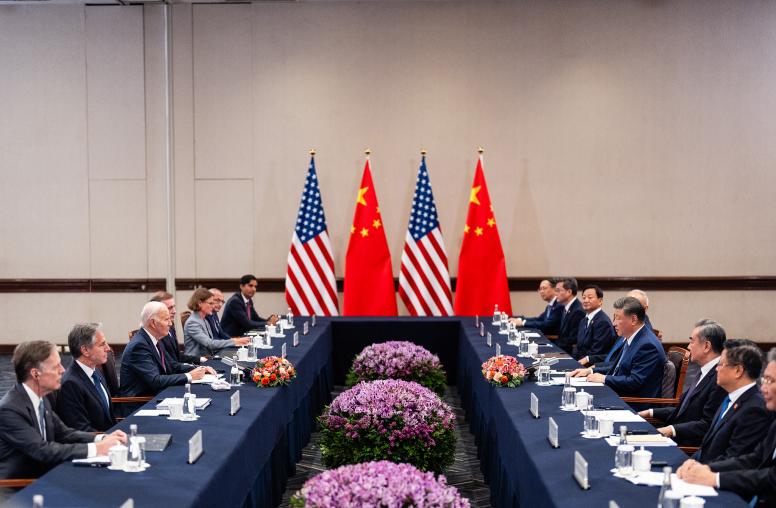The Current Situation in North Korea
A USIP Fact Sheet
Since assuming control in 2012, Kim Jong Un has accelerated the development of a nuclear deterrent capability, conducting more nuclear and ballistic missile tests than his grandfather and father combined. In 2017, tensions escalated when North Korea conducted its sixth nuclear test and its first intercontinental ballistic missile test.
In 2018, various factors helped reduce the potential for conflict and create an opening for diplomacy. South Korea hosted the Winter Olympics in 2018 and President Moon Jae-in invited North Korean participation, leading to senior-level talks and three inter-Korean summits. Kim, claiming North Korea’s nuclear force development was complete, announced a strategic shift toward economic development and began a charm offensive. In addition, President Trump made unconventional decisions to suspend major joint U.S.-South Korea military exercises and meet directly with Chairman Kim in Singapore — marking the first-ever meeting between a sitting U.S. president and a North Korean leader.
At the historic Singapore Summit in June 2018, the United States and North Korea committed to establish “new U.S.-DPRK relations” and North Korea also committed to work toward the “complete denuclearization of the Korean Peninsula.” However, the two countries disagreed about what each side should concede and when, leading to a diplomatic failure at the second summit in Hanoi in February 2019.
Today, the diplomatic stalemate continues, and tensions are increasing. North Korea has resumed the development of its military deterrence capabilities, including the most ballistic missiles tests in any year. In response, the United States and South Korea agreed to expand the scale and scope of combined military exercises and redeploy U.S. strategic assets to the Korean Peninsula. The present challenge is how to shift away from this vicious cycle of tension into a virtuous cycle of accommodation.
USIP’s Current Work on North Korea
For decades, USIP has supported efforts to strengthen peace and stability and prevent crisis on the Korean Peninsula. USIP collaborates with U.S. and regional experts, government officials and diplomats to convene dialogues and conduct research exploring strategies for enhancing diplomacy, avoiding conflict and managing crises related to North Korea.
Facilitating High-Level Dialogues
In the absence of formal ties between Washington and Pyongyang, the Institute regularly engages governmental officials and nongovernmental experts from South Korea, Japan, China and other relevant countries to strengthen security in Northeast Asia and reduce the risk of violent conflict on the Korean Peninsula. These recurring, private dialogues create opportunities to share insights and policy ideas that might not emerge through official diplomatic channels.
Convening Experts
USIP partners with think tanks and other organizations to engage experts on strategies and concrete actions to enhance the use of diplomacy in resolving the North Korea issue. In 2018, USIP convened a senior study group that examined China’s role in North Korean peace and denuclearization negotiations. Also, in 2021, USIP conducted a “peacegame” simulation exercise with U.S., South Korean and Chinese experts to explore ways to enhance diplomatic risk-taking and reduce tensions on the Korean Peninsula.
Promoting Independent Research and Analysis
USIP supports research and analysis that sheds new light on regional strategies toward North Korea and explores creative approaches for enhancing cooperation to strengthen mutual security. In 2020, USIP published a report that examined the contours of a peace regime for the Korean Peninsula, including key opportunities and challenges.
Educating Policymakers, Academics, and the Public
USIP convenes public and private panels and roundtable discussions that inform U.S. policymakers and the public about the viability of different diplomatic strategies for dealing with North Korea. USIP also hosts university students and military scholars to engage in comprehensive discussions about the political, economic, military, and social situation in North Korea.



